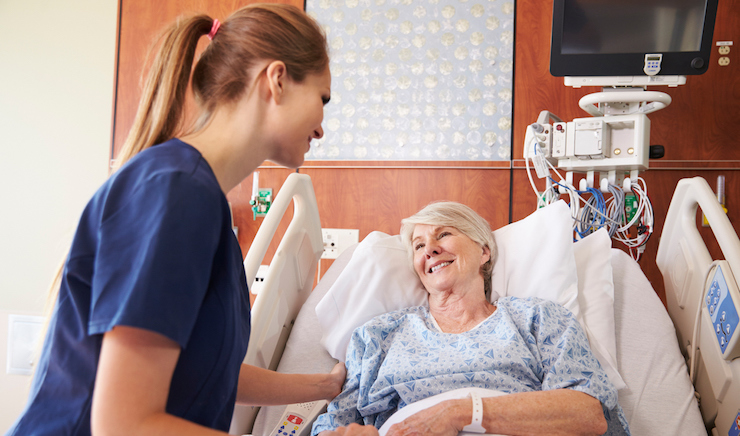
Hospitals are places for people to get better but that’s not always the case. Every day in Australian hospitals patients are injured or become sick with an infection. Find out how you can reduce your risks during your next hospital stay.
Hospital Food
We like to joke about bad hospital food but it’s no laughing matter if you are in hospital and not eating properly. Food needs to be mass produced in hospital kitchens so if you are used to a strict organic, low sugar or paleo diet you are probably going to be disappointed with the meals that are served to you.
You need to eat a healthy diet to aid recovery so if you are skipping meals or eating a limited range of foods; you may not be getting the nutrients your body needs. Perhaps you could ask a family member or friend to supplement the hospital menu with some healthy home-cooked meals that you are used to eating.
Injuries
Elderly patients are particularly at risk of suffering a fall in hospital. A large number of patients fall while getting out of bed after taking sleeping tablets. If you need to get out of bed after your medications, ask the nursing staff for assistance first. Make sure the bed is at an ideal height before attempting to get out of bed.
Be careful when showering soon after surgery as you are at risk of fainting. The heat from the shower, pain and anaesthetic can make you feel unwell quite quickly. Try to use a shower chair or ask for assistance if you think you are at risk.
Infections
Despite its clean appearance and smell of disinfectant, hospitals can contain some of the most harmful bacteria in society. Unfortunately, people who have had surgery or have a compromised immune system are at a higher risk of being infected.
One third of the population carries Staphylococcus aureus (golden staph) and don’t even know it. The staph bacteria can cause a range of illnesses from skin infections like boils and abscesses to pneumonia and infections of the brain membranes, bone, lungs, veins and heart valves.
Methicillin-resistant Staphylococcus aureus (MRSA) is an antibiotic-resistant bacteria that can be passed on by touching an object or person carrying the bacteria. It can cause infections in surgical wounds or the skin around an implanted feeding tube or catheter. While most cases are mild, some cases can be life-threatening.
Make sure you use an alcohol-based hand sanitizer regularly, particularly before eating or touching any wounds. Use soap and water then dry your hands thoroughly after visiting the bathroom. Make sure any wounds are kept well covered with a bandage and keep an eye on your wounds for any early signs of infection.
By quitting or cutting down on smoking two months before surgery, you can improve your risk of wound infections.
Mobility
Try to stay mobile as much as you can while in hospital. You can reduce your chance of developing complications such as blood clots, deep vein thrombosis and bed sores. Also, moving around will help keep the blood circulating your body which will aid in your recovery.
Get out of bed to move around your room or down the hallway. Spend part of the day sitting up in a chair rather than spending all of your time in bed. A change in seating surface and position will be good for your back.
If you aren’t able to leave your bed, try to raise your legs and arms throughout the day and evening to keep the blood circulating. Even wiggling your toes and fingers and tensing your leg and arm muscles can help. Change position in bed at least every 20 minutes, so you don’t develop painful pressure points. If your movement is restricted, try to keep wearing surgical stockings for as long as possible.
By making a few simple steps to keep yourself free of injuries and infections, you will be able to leave hospital earlier and enjoy a faster recovery.
HIF Hospital Cover
With five levels of hospital cover, you can choose the one that suits your requirements. From basic cover for accidental injuries and minor surgeries to top level private room cover with all the bells and whistles, it’s your choice.